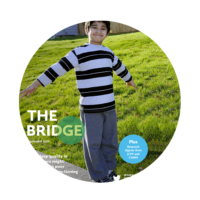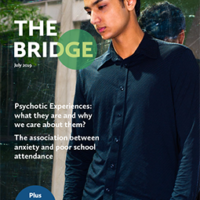Self-esteem
-

Redistributing power in schools and how this can impact young people’s agency and identity
Recent Guardian articles have been reporting how this year’s GCSE exam results have been impacted by the crisis in young people’s mental health. There is increasing concern among school leaders about school absence and abnormal levels of anxiety. As I embark on the third blog related to my research, I explore how the research processes I developed, positively impacted the young people involved and acts as a counter to much of what young people see as being wrong with schools.
Read more -

The relationship between perceived income inequality, adverse mental health and interpersonal difficulties in UK adolescents
Open Access paper from the JCPP – “The salience of economic inequalities in proximal social environments (e.g. among friends) in early adolescence could further amplify the negative effects of economic disadvantage on mental health and behavioural difficulties during this period”. Blanca Piera Pi-Sunyer et al.
Read more -

September 2020 – The Bridge
The month of September is a challenging time for young people, as they start a new school year. September 2020 will be particularly difficult for many, as they must also deal with the stresses of the coronavirus pandemic and social distancing, as well as the effects of increasing financial pressures on families.
Read more -

Should we pay more attention to self-esteem in young people?
Researchers in Bordeaux, France have investigated the association between self-esteem (assessed in adolescence or adulthood), with adult academic and psychosocial outcomes.
Read more -

Psychological resilience in young people
Having spent a lot of time on a camp bed in a paediatric ward with young people and their families, some of whom were inpatients for weeks on end and facing huge physical challenges, it has made me wonder a great deal about the elements of psychological resilience in young people.
Read more -

Psychotic Experiences: what they are and why we care about them?
Over the past 20 years, findings from the field of psychosis research have shed new light on the prevalence of PEs among children and adolescents, revealing that about 17% of children and 8% of adolescents report experiences of these phenomena.
Read more -

Most Cited JCPP Articles #2 of 60
Most cited JCPP papers #2 of 60: Twenty years’ research on peer victimization and psychosocial maladjustment: A meta-analytic review of cross-sectional studies
Read more -

Most Cited JCPP Articles #21 of 60
Most cited JCPP papers #21 of 60: PATHWAYS FROM CHILDHOOD TO ADULT LIFE
Read more -

Can physical exercise improve tics and associated mental health difficulties in Tourette syndrome? The jury is out
Physical exercise is increasingly being recommended as part of management for children and young people with mental health problems. There is a growing evidence base that shows physical exercise is associated with improvements in functioning for conditions such as attention deficit hyperactivity disorder (ADHD), although studies are small, they are signifcant.
Read more -

Self image estimations impact on mental health
Our overall estimation of “self image” is thought to be based on various parameters, such as perceptions of body image, mental function and social attitude. Now, a study by Maria Di Blasi and colleagues has investigated the extent by which these different parameters can influence psychological well-being.
Read more